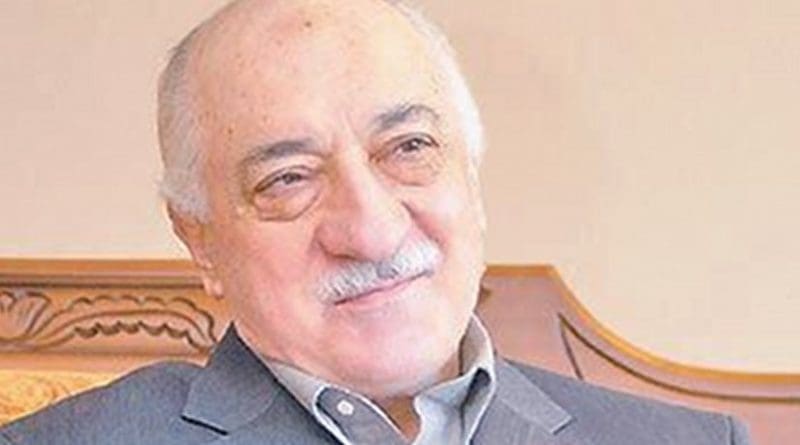Turkey Presses Albania To Extradite Key ‘Gulenist’ Suspect
By Fatjona Mejdini
Albania is under pressure to deport a 39-year-old detained in Durres, who Turkish media link with a Twitter account that infuriated Ankara with its leaks of state secrets.
Albania is under pressure to extradite an alleged member of Muslim cleric Gulen’s Hizmet movement, which Turkey accuses of being behind last year’s failed coup against President Erdogan.
On Thursday, Albanian police in Durres announced the detention of a Turkish national named Muhammet Aydogmus, 39, on the basis of a Turkish international arrest warrant.
Police said Aydogmus, his wife and two children were detained on Monday in Durres while trying to travel to Italy using false passports.
“After an investigation by the office of Interpol, Tirana found out that Turkish citizen Muhammet Aydogmus had an international warrant concerning a terrorist organisation and was sought by the Turkish courts,” the police said.
Sources from the Durres prosecution told BIRN that they had asked for a 40-day jail security measure – the legal deadline – before considering extradition.
“Within this deadline, the foreign authorities – in this case the Turkish ones – have to send all the investigative materials for the case based on which they seek extradition,” the source said.
Turkish state news agency Anadolu reported that Aydogmus was allegedly connected to the movement linked to exiled Turkish cleric Fetullah Gulen, which Ankara calls the Fetullah Terrorist Organization, FETO.
“Aydogmus is accused of membership of a terrorist organisation [FETO] and was allegedly one of the suspects controlling the notorious @fuatavni Twitter account,” Turkey’s Anadolu Agency reported on October 12.
The same report said that Aydogmus would be deported to Turkey after the legal procedures were completed in Albania.
@fuatavni and @fuatavni_f, which have millions of followers, leaked several top-secret state documents about elections, security and the government in Turkey, as well as secrets about Erdogan and his family.
The Twitter accounts first appeared in 2013 and 2014 respectively, and stopped publishing tweets following last year’s coup attempt.
The Gulen movement is a transnational religious and social movement inspired by the Turkish Muslim preacher Fethullah Gulen who has lived in voluntary exile in Pennsylvania in the US since 1999.
Erdogan and Gulen were close allies until 2013, and thousands of Gulen supporters took up positions in the army, police, judiciary and bureaucracy.
From 2011 onwards, however, the so-called Gulenists became uncomfortable with Erdogan’s nationalist and Islamist agenda and the first cracks in their alliance became visible.
Erdogan then turned on the organisation, calling it a “parallel state” and calling it “the Fethullahist Terrorist Organization”, or FETO, for short.
Ankara claims that last year’s failed coup on July 15 was instigated by Gulenists, after allegedly the “FETO” had infiltrated army and other state institutions.
Turkish officials have pressured Albania and other states in the Balkans to suppress Gulenist NGOs and colleges and hand over Gulen movement members.
As a major crackdown continues in Turkey, tens of thousands people, including Gulenists, opposition members and minorities, have left the country seeking political asylum or a better life in Europe and the US.
According to the German foreign ministry at least 8,000 Turkish citizens have applied recently for political asylum in Germany.
Albania has ratified the European Convention on Extradition. After the courts have ruled on this case, the Justice Ministry will have the last word over extradition.

